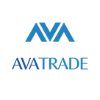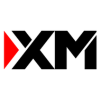BEST AGRIC COMMODITIES BROKERS IN NIGERIA
We highlight brokers wey give Naija investors access to agric markets—cocoa, palm oil, corn and plenty global contracts. We check security, fees, liquidity and beta tools, so you fit diversify into real assets without stress.

Ranking Methodology
To compile the ranking, we rely on a professional criterion that follows these steps:
We test the platforms based on several basic parameters (see list).
We test the platforms based on ranking-specific parameters.
We ensure the results are accurate (consistency and absence of outliers).
We verify on social media and forums that our parameters are socially sound and that no relevant negative reviews exist.
We present and publish the ranking.
Basic Testing Parameters for Apps Included in the Ranking
They allow accounts to be opened by local clients; meaning we exclude platforms not available in certain countries.
Regulatory compliance and security.
Transparency, reputation, and data protection.
Total costs (commissions, spreads, non-trading fees, deposits/withdrawals).
User experience (UX/UI), stability, and performance (uptime, latency).
Platform and tools (charts, alerts, backtesting, mobile, desktop, API).
Execution and liquidity (order quality, slippage, depth).
Customer support (languages, coverage, response times).
Education and resources (guides, research, demos, simulators).
Specific Parameters for the Commodities Ranking
Range of commodities available (energy, metals, agricultural, soft commodities).
Access to global commodities markets (NYMEX, ICE, LME, CBOT, CME).
Spreads and specific costs on commodity contracts.
Leverage and margins applicable to commodity trading.
Availability of spot, futures, and commodity-based ETFs.
Execution quality and market depth in volatile commodities.
Analytical tools for supply and demand (stocks, inventories, seasonality).
Availability of specialised research on commodity markets.
How to open an Investment Account
In Nigeria, opening an investment account is quick once you’ve chosen a provider. The process applies whether you want to invest in stocks, ETFs, bonds, crypto or real estate.
Go to the official website: Click “Open account” or “Get started”.
Provide your details: Name, email, phone and country. You’ll need a Nigerian ID (NIN, voter’s card, or passport) plus proof of address such as an electricity bill from Ikeja Electric or a bank statement issued in the last 3 months.
Await approval: Some are instant, others may take a few days.
Set up your account: Adjust settings to your risk profile once approved.
Fund your account: Deposit via card, bank transfer or mobile wallets.
And you’re set to start investing.








